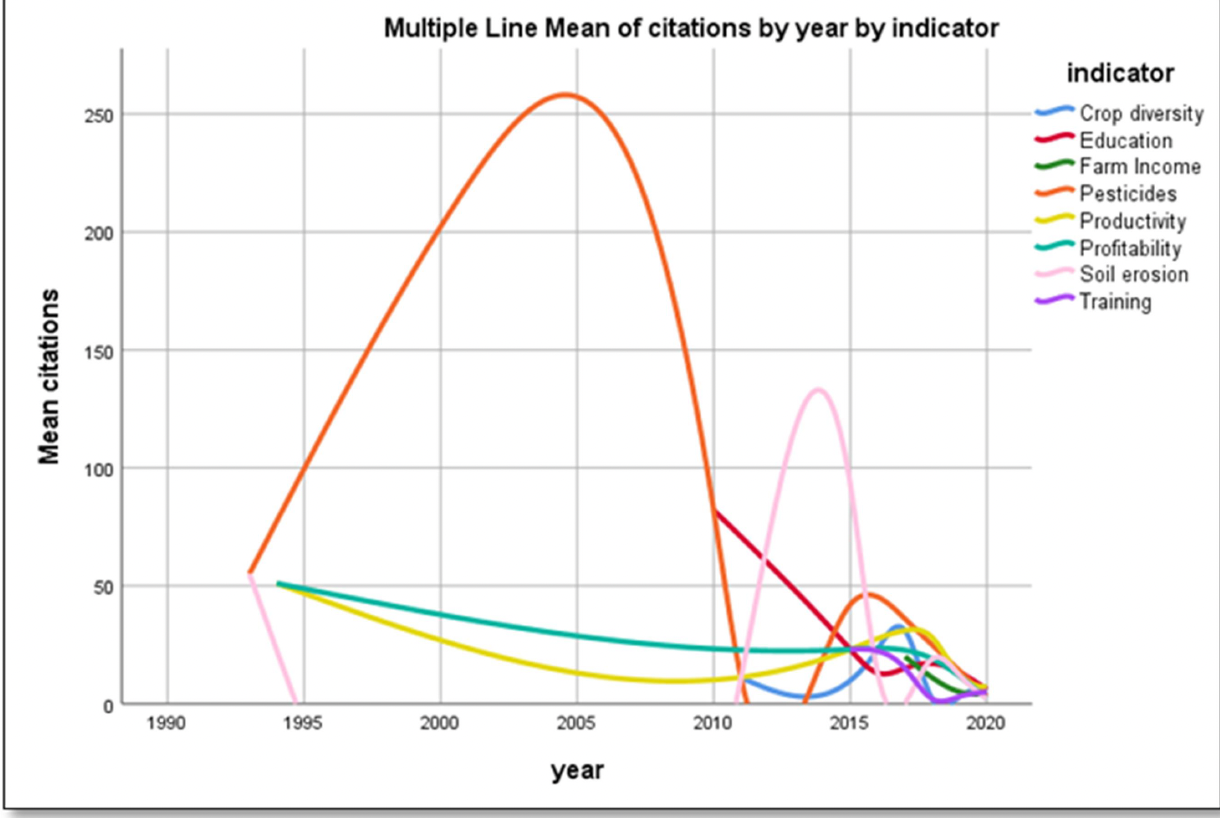Sustainability indicators in Agriculture: A Review and Bibliometric analysis using Scopus database.

Published 2021-12-30
Keywords
- bibliometrics,
- citation analysis,
- indicatori of scientific research
How to Cite
Abstract
Indicators are being used in many agricultural sustainability assessment methods, but disputes about a common indicator for the definition of sustainability have resulted in so many various indicators and methods of measurement. The objective of this review is to provide a bibliometric analysis of sustainability pillars and indicators that has been widely applied. In addition, this paper evaluates the impact of pillars and indicators on scientific research through the analysis of their citation and trend. Using Scopus database, a total of 30 articles have been selected. The search revealed more than 500 indicators, and the top 3 indicators of each pillar which were considered in 7 articles or more are (soil erosion, crop diversity and pesticides) for environmental pillar, (education and training) for social pillar are and (Profitability, productivity and farm income) for economic pillar. Results showed that the environmental pillar is the most tackled in terms of the number of articles (n=22) and the most cited with a mean citation of about 60. The pesticide is the oldest indicator in terms of its average year of publication in 2011, the most cited indicator of more than 250 in 2005 and has the highest mean citation of about 42. The least cited indicators are farm income and training with less than 10 mean citation. Nowadays, the economic pillar is considered one of the most discussed and widely implemented with a total of 7 published articles in 2020.




